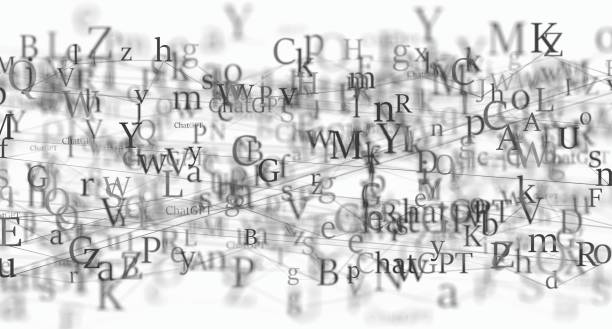Writing prompts are invaluable tools for writers, serving as catalysts for creativity and sparking new ideas. One interesting and increasingly popular method for generating writing prompts is using a random word generator. These tools offer an innovative way to break through writer’s block and explore new storytelling avenues. This article will delve into how a random word generator can be utilized for writing prompts, the benefits and challenges associated with this approach, and tips for maximizing its potential.
Understanding Random Word Generators
A random words generator is a simple digital tool that produces words at random from a predefined list. These tools can generate single words, phrases, or even sentences, depending on their design and user preferences. They are accessible online and are often free to use, making them an easy and convenient option for writers seeking inspiration.
Benefits of Using Random Word Generators
1. Sparking Creativity
One of the primary benefits of using a random word generator is that it can spark creativity. When faced with an unexpected word or phrase, writers are forced to think outside the box and make connections they might not have considered otherwise. This can lead to unique and original ideas that can form the basis of compelling stories, essays, or poems.
2. Overcoming Writer’s Block
Writer’s block is a common challenge for many writers. Staring at a blank page can be daunting, and sometimes all it takes to get the words flowing is a little nudge. Random word generators provide that nudge by offering a starting point, no matter how unrelated or abstract the word may seem.
3. Expanding Vocabulary
Using a random word generator can also help writers expand their vocabulary. By encountering new words and incorporating them into their writing, writers can enhance their language skills and make their writing more varied and interesting.
4. Flexibility and Versatility
Random word generators are highly flexible tools. Writers can use them in various ways, from generating a single word to inspire a short story to producing multiple words to create complex narratives. This versatility allows writers to tailor the tool to their specific needs and writing goals.
Challenges of Using Random Word Generators
1. Relevance
One of the main challenges of using a random word generator is that the generated words may not always be relevant or useful. Writers may receive words that are difficult to incorporate into their current projects or that do not resonate with their writing style.
2. Overreliance
There is also the risk of becoming overly reliant on random word generators. While these tools can be helpful, it’s essential for writers to develop their own ideas and creativity. Using a random word generator should complement the writing process, not replace it.
3. Quality of Prompts
The quality of the prompts generated by these tools can vary. Some words may be too simple or generic to inspire meaningful writing, while others may be too complex or obscure. Writers need to be selective and use their judgment to determine which words are worth exploring.
Tips for Maximizing the Potential of Random Word Generators
1. Set Clear Objectives
Before using a random word generator, it’s essential to set clear objectives for your writing session. Decide what you want to achieve—whether it’s brainstorming new story ideas, practicing descriptive writing, or exploring a specific theme. Having a clear goal will help you make the most of the generated words.
2. Use Multiple Words
To create more substantial and engaging prompts, consider using multiple words generated by the tool. Combining two or three random words can lead to more complex and intriguing ideas, encouraging deeper exploration and creativity.
3. Experiment with Different Generators
There are many random word generators available online, each with its own unique features and word lists. Experimenting with different tools can help you find the one that best suits your needs and preferences. Some generators may offer customization options, allowing you to specify word categories or difficulty levels.
4. Incorporate Personal Experience
While random words can provide a starting point, incorporating personal experiences and emotions into your writing can make the prompts more meaningful. Use the generated words as a foundation and build upon them with your own thoughts, memories, and perspectives.
5. Practice Regularly
Like any skill, creativity and writing improve with regular practice. Make using a random word generator a regular part of your writing routine. Set aside time each day or week to generate new prompts and challenge yourself to write something based on those words.
Practical Applications for Different Writing Forms
1. Fiction Writing
For fiction writers, random word generators can be particularly useful in character development, plot creation, and setting description. A single word can inspire an entire character backstory or a pivotal plot twist. By combining multiple words, writers can create intricate and dynamic narratives.
2. Poetry
Poets can benefit from random word generators by using the generated words as the basis for lines or stanzas. This can lead to unexpected imagery and unique expressions that enrich their poems.
3. Essay Writing
Essay writers can use random word generators to brainstorm ideas for topics or to find unique angles on existing subjects. The generated words can help writers think critically and creatively about their essay themes.
4. Creative Nonfiction
In creative nonfiction, random word generators can inspire writers to explore new perspectives and experiences. The words can prompt writers to reflect on their own lives and the world around them in novel ways.
Conclusion
In conclusion, a random word generator can be a valuable tool for writing prompts, offering numerous benefits such as sparking creativity, overcoming writer’s block, expanding vocabulary, and providing flexibility. However, it also presents challenges like relevance and quality of prompts, which writers need to navigate carefully. By setting clear objectives, using multiple words, experimenting with different generators, incorporating personal experiences, and practicing regularly, writers can maximize the potential of random word generators and enhance their creative writing process. Whether you are a fiction writer, poet, essayist, or creative nonfiction author, these tools can provide a wealth of inspiration and help you discover new and exciting directions for your writing.









